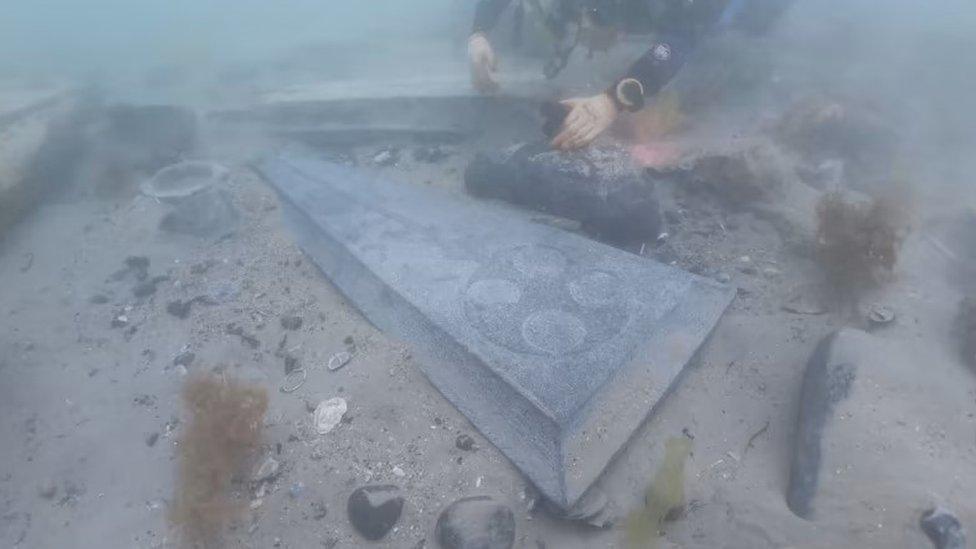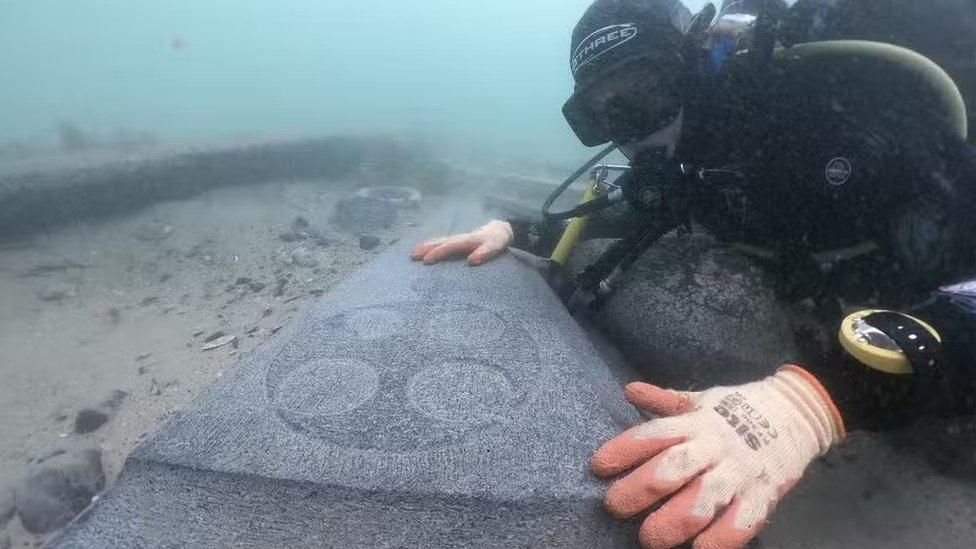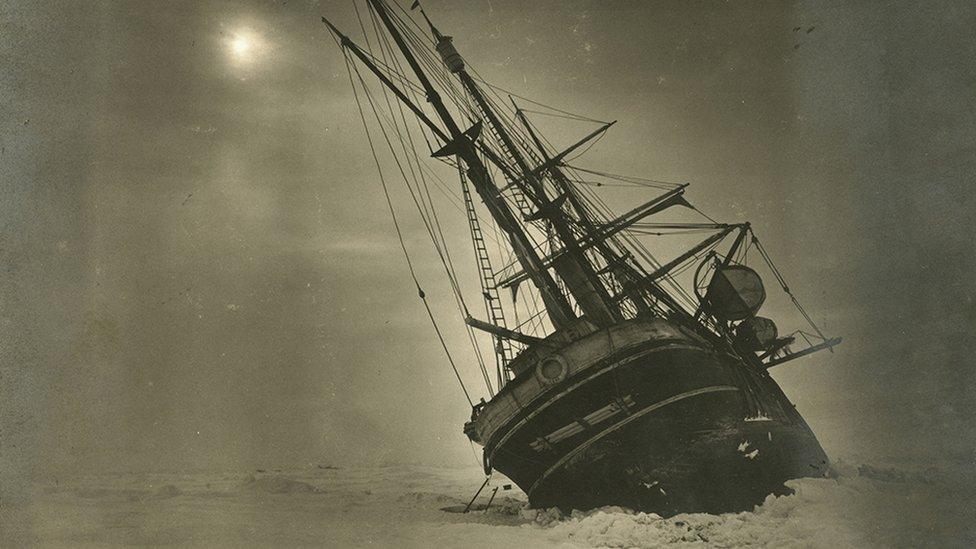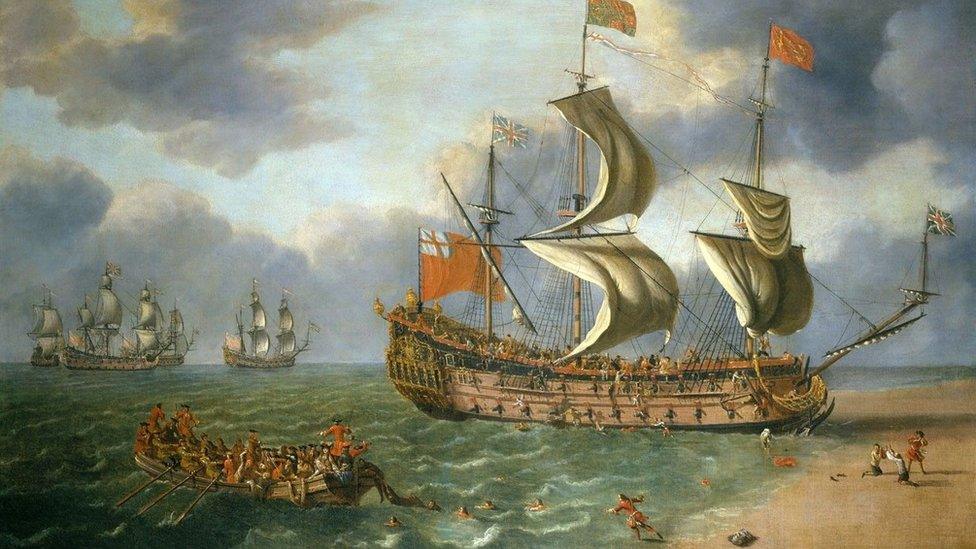The Mortar Wreck: Medieval shipwreck found near Dorset coast
- Published
- comments

A medieval shipwreck has been given special legal protection to protect it for future generations.
The Mortar Wreck was found off the Dorset coast in 2020 by a local diver.
Now it has become the oldest protected wreck in English waters. Its timbers date from between 1242 and 1265.
It has been granted the highest level of legal protection to look after the structure and artefacts within the wreck - meaning divers must get special permission before diving on the site.

Some of the artefacts found on the shipwreck
The shipwreck was named the Mortar Wreck, after the mortar bowls used for grinding grain that were the first artefacts found on the site.
The vessel was dated by looking at the tree-rings on the ships timber. It was found that it was made from Irish oak cut down between 1242 and 1265, during King Henry III reign.
The survival of the ship is very rare, there are no other known seagoing ships from 11th to the 14th centuries found in English waters.
Trevor Small, the diver who found the site, said: "In summer 2020, I discovered what I believed to be an undetected wreck site. Recent storms had revealed something unknown on the seabed. I was granted permission to dive the wreck.
"The rest is history. I've found one of the oldest shipwrecks in England."

Along with the mortar bowls, two intact gravestones were discovered at the site.
They were made from Purbeck stone, one with a wheel headed cross on it and another with an arm cross, both were common styles in the 13th century. These gravestones were a sign of high status.
Cauldrons were also found, a large one for cooking soup and a smaller one for heating water.
Tom Cousins, a maritime archaeologist who is part of the team at Bournemouth University studying the wreck, said:
"Very few 750-year-old ships remain for us to be able to see today and so we are extremely lucky to have discovered an example as rare as this, and in such good condition.
Along with the Mortar Wreck, two other vessels were given special protected status, the 16th century Shingles Bank Wreck NW96 and 17th century Shingles Bank NW68.
- Published7 January 2022

- Published11 June 2022

